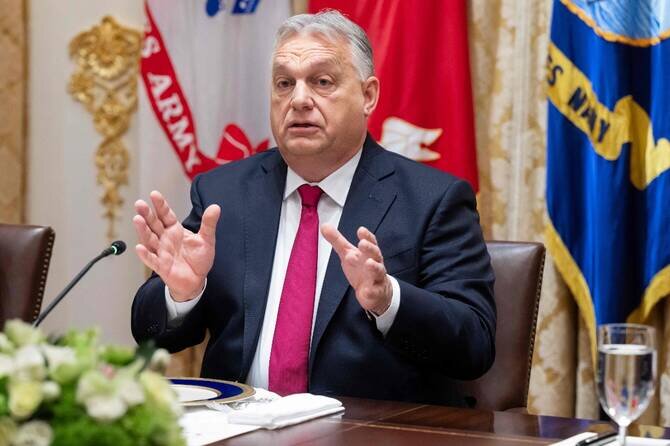
Nationalist Parliament Speakers Emerge Across Europe Amidst Controversy
The recent election of nationalist politicians as parliament speakers in four European countries has sparked controversy, reflecting a broader trend across the continent.
In recent years, right-wing parties have gained prominence in European polls, leading to the rise of nationalist politicians holding significant parliamentary positions.
This phenomenon became particularly evident with the election of Tomio Okamura, a far-right leader, as Czech Republic's first-ever parliament speaker on Wednesday.
Okamura, who has advocated for halting aid to Ukraine, sparked controversy by ordering the removal of the Ukrainian flag from the parliamentary building where it had been displayed in solidarity.
Similarly, Austrian historians have urged the country's newly elected first far-right parliamentary speaker to cancel an event honoring Franz Dinghofer, a declared antisemite and former Nazi party member.
This event, planned for November 11th, has raised concerns about the normalization of problematic historical figures.
The appointment in Austria is part of a broader trend affecting Italy, Slovakia, and the Czech Republic.
These developments can be traced back to Hungary, where nationalist Prime Minister Viktor Orban's party has held the parliamentary presidency since 2010.
Orban's tenure has demonstrated that staying within the European Union while challenging its norms is feasible.
The trend gained momentum with Donald Trump's return to the U.S. presidency, showcasing a shift in political culture and an ambiguous stance towards Russia.
Countries with a shared communist past and proximity to Russia are cautious about provoking Moscow and fear losing EU funds if distributed among countries seeking membership or aid, such as Ukraine.
For nationalist parties, gaining control of parliamentary presidencies marks a significant step towards legitimacy and influence, allowing them to counterbalance executive branches and leverage budgetary power.
This trend reflects a broader polarization in European politics, with implications for the continent's unity and values.
As these developments unfold, the role of nationalist politicians in shaping the future of Europe remains a subject of intense debate.
This phenomenon became particularly evident with the election of Tomio Okamura, a far-right leader, as Czech Republic's first-ever parliament speaker on Wednesday.
Okamura, who has advocated for halting aid to Ukraine, sparked controversy by ordering the removal of the Ukrainian flag from the parliamentary building where it had been displayed in solidarity.
Similarly, Austrian historians have urged the country's newly elected first far-right parliamentary speaker to cancel an event honoring Franz Dinghofer, a declared antisemite and former Nazi party member.
This event, planned for November 11th, has raised concerns about the normalization of problematic historical figures.
The appointment in Austria is part of a broader trend affecting Italy, Slovakia, and the Czech Republic.
These developments can be traced back to Hungary, where nationalist Prime Minister Viktor Orban's party has held the parliamentary presidency since 2010.
Orban's tenure has demonstrated that staying within the European Union while challenging its norms is feasible.
The trend gained momentum with Donald Trump's return to the U.S. presidency, showcasing a shift in political culture and an ambiguous stance towards Russia.
Countries with a shared communist past and proximity to Russia are cautious about provoking Moscow and fear losing EU funds if distributed among countries seeking membership or aid, such as Ukraine.
For nationalist parties, gaining control of parliamentary presidencies marks a significant step towards legitimacy and influence, allowing them to counterbalance executive branches and leverage budgetary power.
This trend reflects a broader polarization in European politics, with implications for the continent's unity and values.
As these developments unfold, the role of nationalist politicians in shaping the future of Europe remains a subject of intense debate.